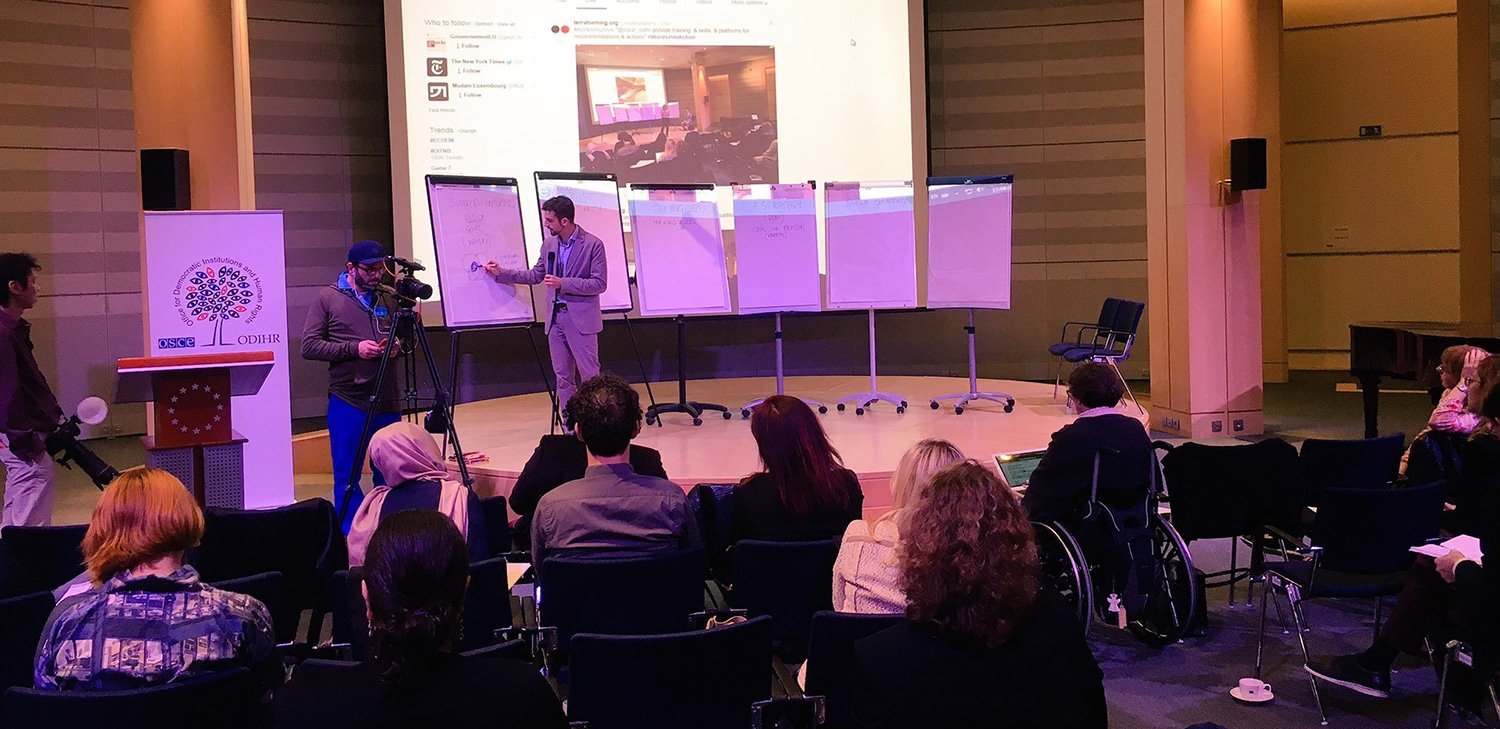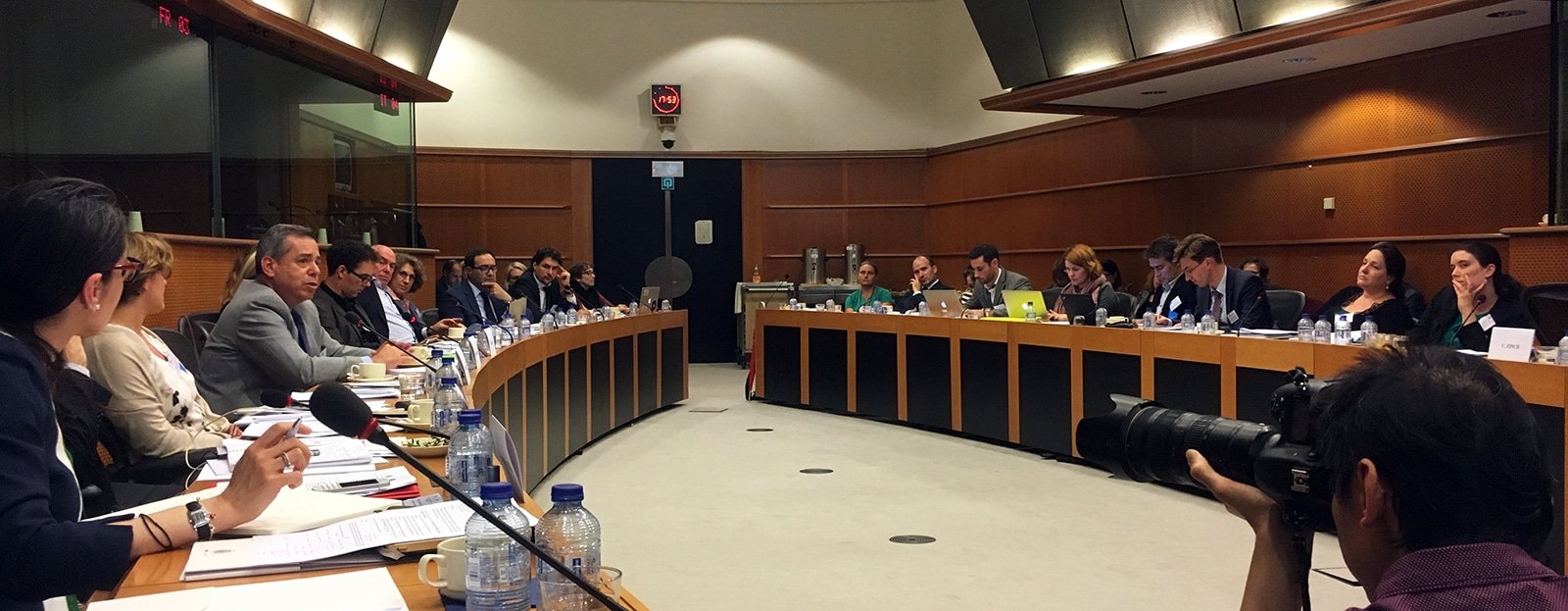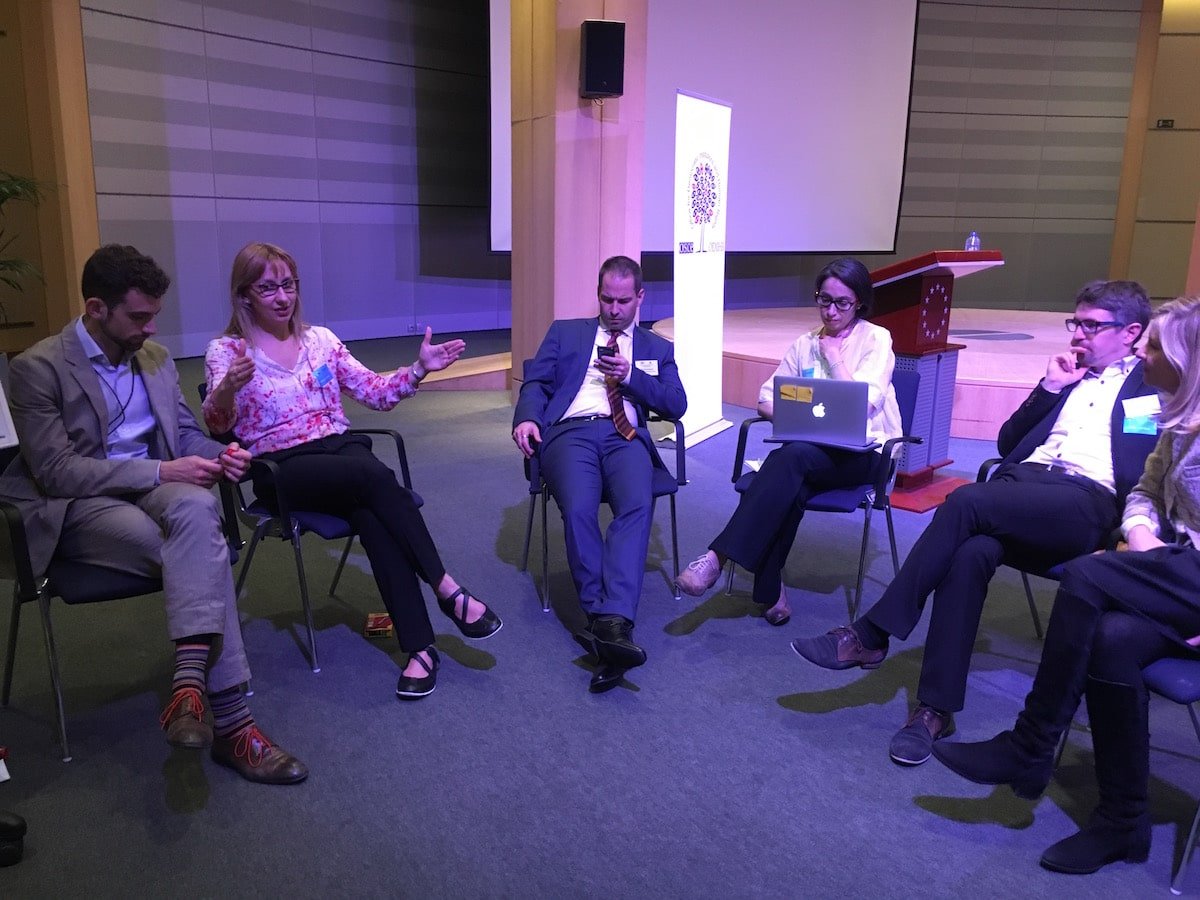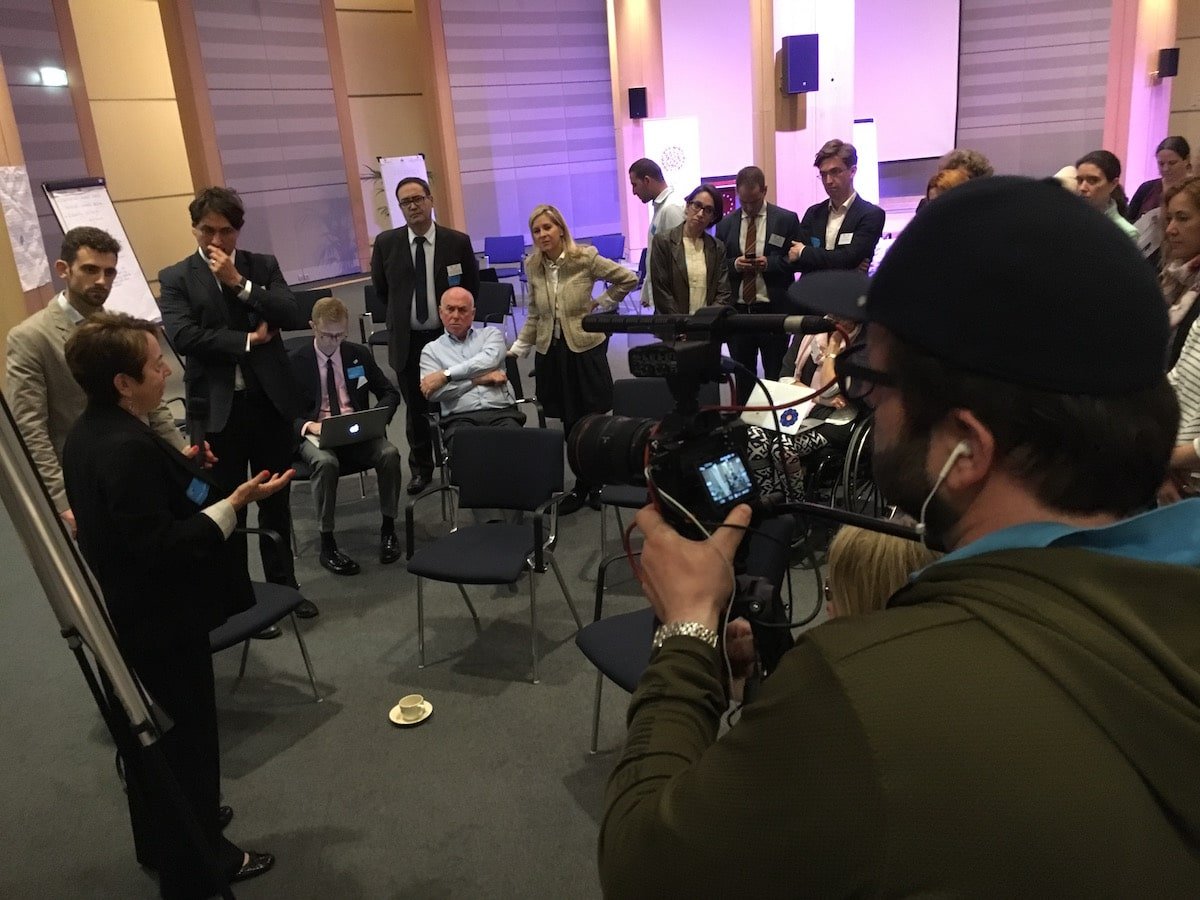Turning words into action to address antisemitism, intolerance and discrimination
OSCE Office for Democratic Institutions and Human Rights (ODIHR) meeting at the European Parliament in Brussels, 16-17 Jun 2016
The event brought together MEPs and representatives of civil society and intergovernmental organisations, in order to draw upon their expertise in respect of coalition building and to analyse advantages of and challenges to building successful coalitions.
Terraforming took part at the OSCE Office for Democratic Institutions and Human Rights (ODIHR) meeting “Turning words into action to address antisemitism, intolerance and discrimination” on 16-17 Juny at the European Parliament in Brussels.
The meeting in Brussels was a next step after the conference “Advancing Tolerance and Non-Discrimination through Coalition Building and Co-operation” in November 2015 in Vienna, and the OSCE’s Berlin+10 Conference on addressing antisemitism in November 2014. Terraforming participated all previous events, too.
The meeting in Brussels was an opportunity for further reflections, exchange and debate with inspiring key speakers and guests.
The main aims of the meeting were to come up with recommendations to improve responses to hate crimes through collaboration between National Points of Contact on Hate Crime, NGOs, CSOs and other stakeholders, and to support greater collaboration between civil society actors in combating antisemitism, intolerance and discrimination.
ODIHR’s event in Brussels was organized in co-operation with the European Parliament’s Anti-Racism and Diversity Intergroup (ARDI).
Countering antisemitism through education and promoting tolerance through inclusive civil society coalitions
ODIHR’s “Turning words into action to address antisemitism” project aims at equipping government officials, parliamentarians and civil society actors with tools to improve the security situation of Jewish communities, counter antisemitism through education, and promote tolerance through inclusive civil society coalitions.
The project is funded by the German Ministry of Foreign Affairs.
Hate crime and discrimination continues to assume new forms and expressions which, along with other acts of intolerance, pose a threat to personal security and, therefore, to overall security in the OSCE region and beyond. Despite making repeated pledges to end hate crime and discrimination, many governments have yet to introduce the necessary legislative tools, carry out official monitoring of incidents or implement police training, educational, and community engagement programs that would contribute to a more robust response to these human rights violations. For this reason, civil society, as a key partner in the efforts to address discrimination and intolerance, can play an important role to fill these gaps by pointing out the needed areas of improvement in government responses.
– from ODIHR’s invitation to the meeting
The role of civil society coalitions in addressing antisemitism
Sixty-four participants from 18 OSCE participating States and Israel discussed best practices and challenges in building sustainable civil society coalitions to improve governmental responses to antisemitism and other forms of discrimination and intolerance.
The aims of the meeting were:
- Bring together civil society organizations, EU parliamentarians, and other important stakeholders in order to build strong and lasting coalitions, all with the aim of reducing antisemitism, intolerance and discrimination;
- Draw upon the high level of expertise in coalition building of the participants to share ideas for the future development of the ODIHR project “Turning words into action to address antisemitism, intolerance and discrimination”, specifically in relation to coalition building;
- Examine how best to establish a series of trainings and workshops, which will be organized with the aim of creating a pool of expertise among the civil society organizations on the topic of coalition building.
The programme offered a lot of space to all participants to express their ideas and to share best practices and experiences. Particularly the second day of the meeting, when for the most part, all participants were working together in groups, discussing and preparing final recommendations.
Programme
Opening remarks
- Cristina Finch, Head, Tolerance and Non-Discrimination Department, OSCE/ODIHR
- Katharina Von Schnurbein, European Commission Coordinator on antisemitism
MEPs interventions
- Benedek Javor MEP, Member, European Parliament Anti-Racism Diversity Intergroup, Chair, Greens/European Free Alliance AntiGypsyism Working Group
- Brando Benifei MEP, Member, European Parliament Anti-Racism Diversity Intergroup Chair, Youth Intergroup
- Soraya Post MEP, Co-President, European Parliament Anti-Racism Diversity Intergroup
Keynote presentation
- Benjamin Fischer, President, European Union of Jewish Students
Panel: Sharing best practices and challenges in building coalitions in the OSCE region
- Mark Weitzman, Chair of the Committee on Antisemitism and Holocaust Denial, International Holocaust Remembrance Alliance (IHRA)
- Robin Sclafani, Director, CEJI – A Jewish Contribution to an Inclusive Europe
- Viviane Teitelbaum, President, European Women’s Lobby
- Ilja Sichrovsky, Secretary General, Muslim Jewish Conference
- Iman Abou-Atta, Deputy Director, Faith Matters
Open space format: Building successful coalitions – advantages and challenges Developing Effective Coalitions
- Azra Junuzovic, Deputy Head, Tolerance and Non-Discrimination Department, OSCE/ODIHR
- Bruno Selun, Founder and Director, Kumquat Consult
Presenting the concept of the coalition building pillar for the Project on “Turning words into action to address antisemitism”




